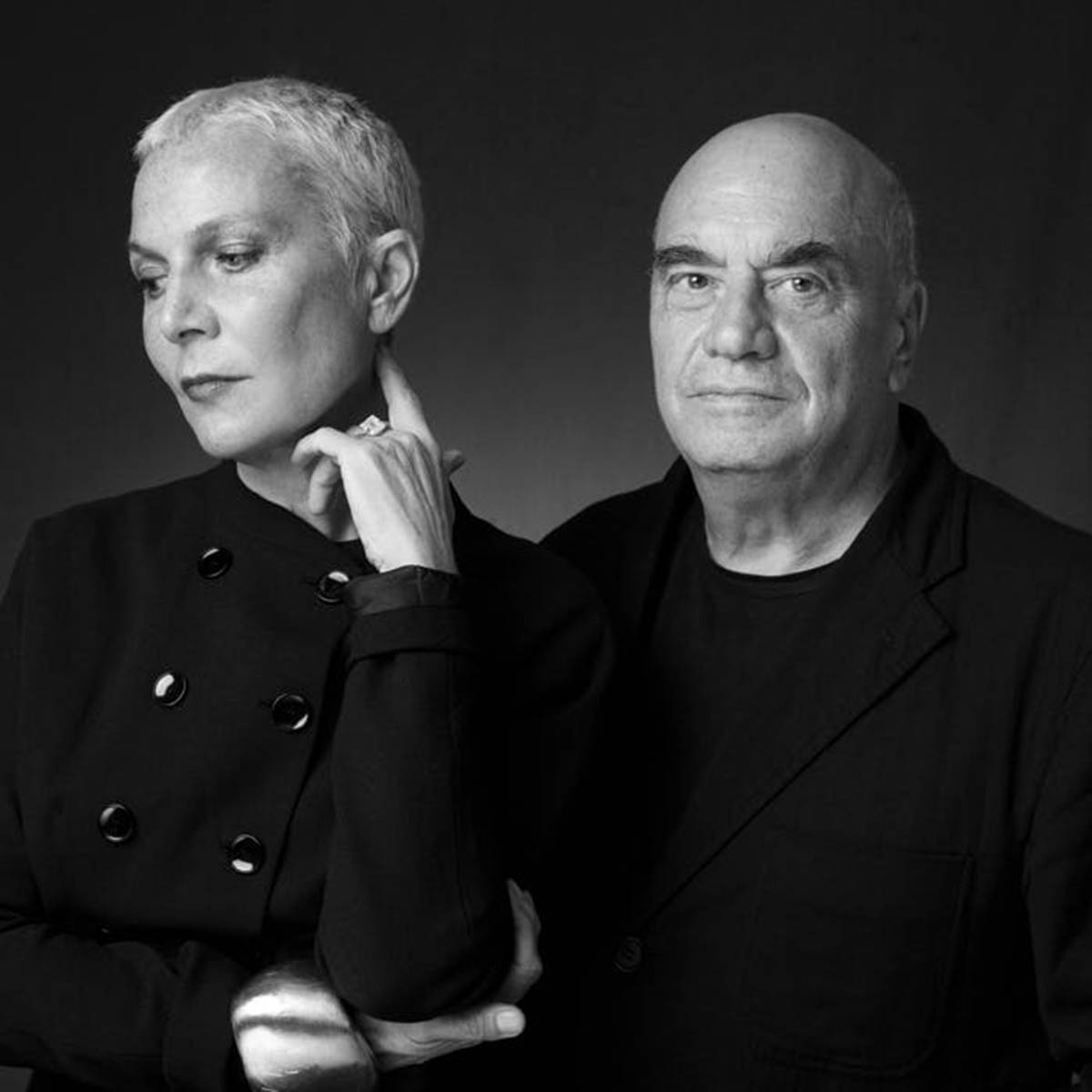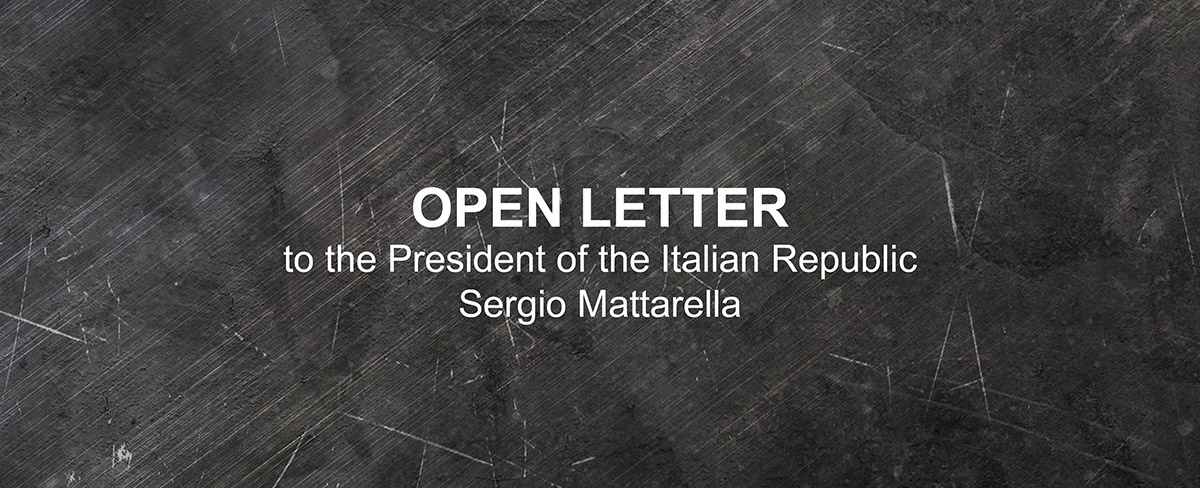Submitted by WA Contents
Massimiliano and Doriana Fuksas identify "possible guidelines" for Covid-19 in an open letter
Italy Architecture News - Apr 28, 2020 - 16:04 10310 views

Massimiliano and Doriana Fuksas, Partners of Studio Fuksas, have identified "conclusions and possible guidelines" in order to search for alternatives and proposals in respond to the global Covid-19 pandemic in an open letter to the President of Italy, Sergio Mattarella.
An open letter, published on Studio Fuksas' website, Massimiliano and Doriana Fuksas published this letter as a result of their meetings with key figures and digital platforms, including architecture studio Archea Associati of Florence, Professor Camillo Ricordi, director of Diabetes Research Institute and the Cell Transplant Centerof Miami, Professor Michele Gallucci, Director of the Urological Clinic of the University La Sapienza of Rome.
An open letter comprises four main points, highlighting a series of possible tips and guidelines to apply for the future.
Alternative model of housing connecting to a local healthcare facility
Fuksas emphasized that the health system of any country is a core product of our lives. An alternative model of housing could be taken into account by implementing minimal useful tools in our apartments.
"Health, economy and habitat, as integral parts of our daily life.The health system of most of Europe is the product of the Usines à Santé (health factory), as our habitat is also a product of the Usines à Vivre (factory to live). The emergency generated by the pandemic has highlighted our unpreparedness to face such situations," said Massimiliano and Doriana Fuksas.
"It is clear that until now, no alternative model of housing has been thought of that would take such scenarios into account, equipping our apartments with minimal useful tools to identify our state of health."
"It would be sufficient enough to have a kit containing a few instruments, such as a pulse oximeter, a thermometer, an oxygen dispenser connection, a camera, and a smartphone or a computer that allows a hypothetical patient to connect to a local healthcare facility, instead of being forced to go en masse to the hospital emergency rooms, causing an overload of the facilities," they added.
Mobility of health services throughout the country
As a second tip, Fuksas highlighted the importance of mobility of health services in the country, especially for the elderly, for the chronically ill, or for patients who can not find a more direct and effective network.
"Spreading health services throughout the territory, as in Germany, would contribute to establishing a more direct and effective network between the inhabitants and the health professionals, including sensor controls, a food guide, and directions for sanitizing environments. Providing tips and guidelines, for all those who quickly need help and assistance," they said.
"These are all useful not only in extreme cases, but also in situations of difficult mobility for the elderly, for the chronically ill, or for patients in postoperative rehabilitation."
Designing a flexible space in the building
Fuksas also proposed to design hundreds of apartments in which one of its floors can be reserved for the community needs in such urgent situations. They added that this space can later be converted into for different kinds of facilities - such as smart working, and a facility equipped for young people to take smart learning lessons, or a place to meet and socialize.
"We imagine designing a building with dozens, hundreds of apartments in which an entire floor is reserved, as a flexible space, intended for the various needs of the community, and can be transformed, depending on the events, into spaces for smart working,and a facility equipped for young people to take smart learning lessons, or to be used simply as a place to meet and socialize," Massimiliano and Doriana Fuksas continued.
"This long period of lockdown has made apparent certain behaviors that weren’t previously considered. This free and flexible plan can also become a place of first aid and isolation."

Read the full version of open letter of Massimiliano and Doriana Fuksas below:
An Open Letter to the President of the Republic
Dear Mr. President,
In a time stretching beyond the confines of what is possible, we have met, on one of numerous digital platforms, every day throughout this period.
Professor Camillo Ricordi, director of Diabetes Research Institute and the Cell Transplant Centerof Miami.
Professor Ottavio Alfieri, Director of Cardiac Surgery at the San Raffaele University Hospitalof Milan.
Professor Michele Gallucci, Director of the Urological Clinic of the University La Sapienza of Rome.
Ramon Prat Homs, publisher and curator, in Barcelona, of the multidisciplinary digital platform Urban Next, focused on rethinking architecture in the contemporary urban context.
Giorgio Moretti, founder of DEDALUS, in Florence, a company specialized in computer science for medicine.
The architecture studio Archea Associati of Florence.
Massimiliano and Doriana Fuksas.
We arrive now to the conclusions and possible guidelines, in order to reflect upon what hasbeen overwhelmingly revealed throughout this period.
FIRST POINT: Health, economy and habitat, as integral parts of our daily life.The health system of most of Europe is the product of the Usines à Santé (health factory), as our habitat is also a product of the Usines à Vivre (factory to live). The emergency generated by the pandemic has highlighted our unpreparedness to face such situations. It is clear that until now, no alternative model of housing has been thought of that would take such scenarios into account, equipping our apartments with minimal useful tools to identify our state of health. It would be sufficient enough to have a kit containing a few instruments, such as a pulse oximeter, a thermometer, an oxygen dispenser connection, a camera, and a smartphone or a computer that allows a hypothetical patient to connect to a local healthcare facility, instead of being forced to go en masse to the hospital emergency rooms, causing an overload of the facilities.
SECOND POINT: Spreading health services throughout the territory, as in Germany, would contribute to establishing a more direct and effective network between the inhabitants and the health professionals, including sensor controls, a food guide, and directions for sanitizing environments.Providing tips and guidelines, for all those who quickly need help and assistance.These are all useful not only in extreme cases, but also in situations of difficult mobility for the elderly, for the chronically ill, or for patients in postoperative rehabilitation.
THIRD POINT: We imagine designing a building with dozens, hundreds of apartments in which an entire floor is reserved, as a flexible space, intended for the various needs of the community, and can be transformed, depending on the events, into spaces for smart working, and a facility equipped for young people to take smart learning lessons, or to be used simply as a place to meet and socialize. This long period of lockdown has made apparent certain behaviors that weren’t previously considered. This free and flexible plan can also become a place of first aid andisolation.
POINT FOURTH: Many of the problems related to the spread of epidemics are also caused by the dysfunctional approach to air treatment. The use and widespread diffusion of air conditioning within tight spaces, both public and private, over the years has caused serious damage to health, spreading any virus present in the air, such as viral pneumonia, legionella and a variety of other contagious diseases. One of the main objectives of the new buildings and architectural spaces must be purificationand air treatment, with simple and effective sustainable systems, such as UV lamps, capable ofsanitizing any kind of environment in a short period of time. More effective and compact tools would allow us to avoid huge power plants and units for suchair treatment, also creating less pollution.
Dear Mr. President, we appeal to you, as representatives of national unity, and above partisanship, at this difficult time, to turn these considerations into guidelines, which we believe to be useful for the construction of a more sustainable and social way of life. In this period of common reflection, we have listened to the reasons of others, we have changed, in part, ourselves, and our passion for rethinking human settlements by making them more functional, contemporary, innovative and human, has emerged strongly.
Generosity, solidarity and hope for a better world for all.
Top image: Doriana and Massimiliano Fuksas. Image © Fabio Lovino
> via Studio Fuksas
